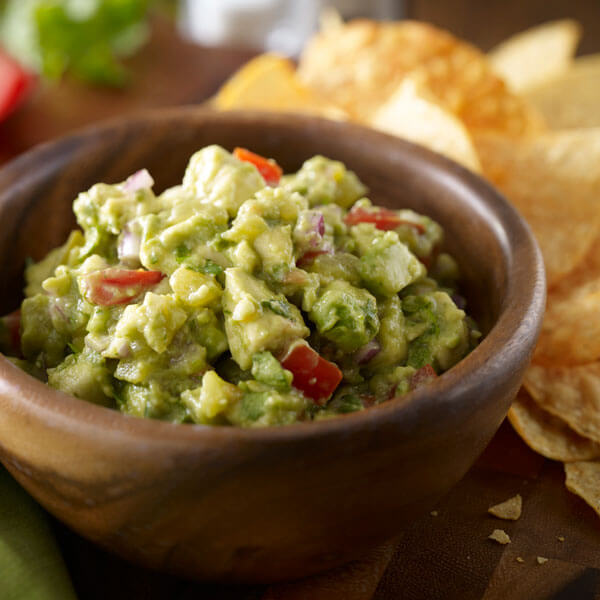Mexico is still the world’s largest avocado-growing region, and with the market set to nearly double in the next three years, health-focused, eco-conscious avocado aficionados are naturally interested in the crop’s carbon footprint.
“I go on a lot of sales calls nowadays to talk about sustainability with our customers,” says Andrew Lower, senior director of operations at MegaMex Foods. “Sustainability is key throughout the entire life cycle of our products, from the fields and orchards to our customers.”
To ensure Wholly® brand avocados are sustainably sourced, the shipment sourcing certifications are gathered and added to a database of farm locations. This allows the company to plot the GPS coordinates on a map and pinpoint the exact locations of the farms to compare the data with historical land-use maps that reveal how the region’s forest cover has changed over time. These data points help Wholly® make sure that they are buying avocados grown in orchards that do not encroach on the native forest.
“I think that’s pretty exciting and kind of cutting edge in this space,” Lower says.
Reducing Food Waste from the Plant to Table
Reducing waste throughout the lifespans of its products is another focus, Lower says. In years past, after being sliced and peeled at the plant, the avocado pit and peel would have been discarded. Today, the pits and peels are collected and given to a local farming co-op to use as cattle feed — supporting the verified 84% of the facility’s total waste that is diverted from landfills towards recycling, reuse, or other processes.
On the consumer side, one of the reasons that Wholly® Guacamole consistently tops consumers’ “best taste” lists is a unique technology that also contributes to a longer shelf life — meaning, less food waste.
The maker of Wholly® products pioneered the use of high-pressure processing (HPP) in avocados. HPP is a technology that preserves food naturally by using 87,000 PSIs of pressure to destroy the microorganisms that cause food-borne illness and spoilage. Because HPP doesn’t require heat, it doesn’t affect the taste, texture or nutritional value of the avocados and it extends products’ shelf life by up to 60 days.
In the same vein, the brand has recently tweaked its packaging to further minimize food waste. After getting feedback from consumers who said it was difficult to scrape out the last bits of guac from a square container, Wholly® product packaging was reconfigured to make the edges rounder, like a bowl, as well as resealable.
The next time you pop open a container of Wholly® guacamole, you can not only enjoy the delicious taste, you can know that the fruit was grown sustainably with future generations in mind.







